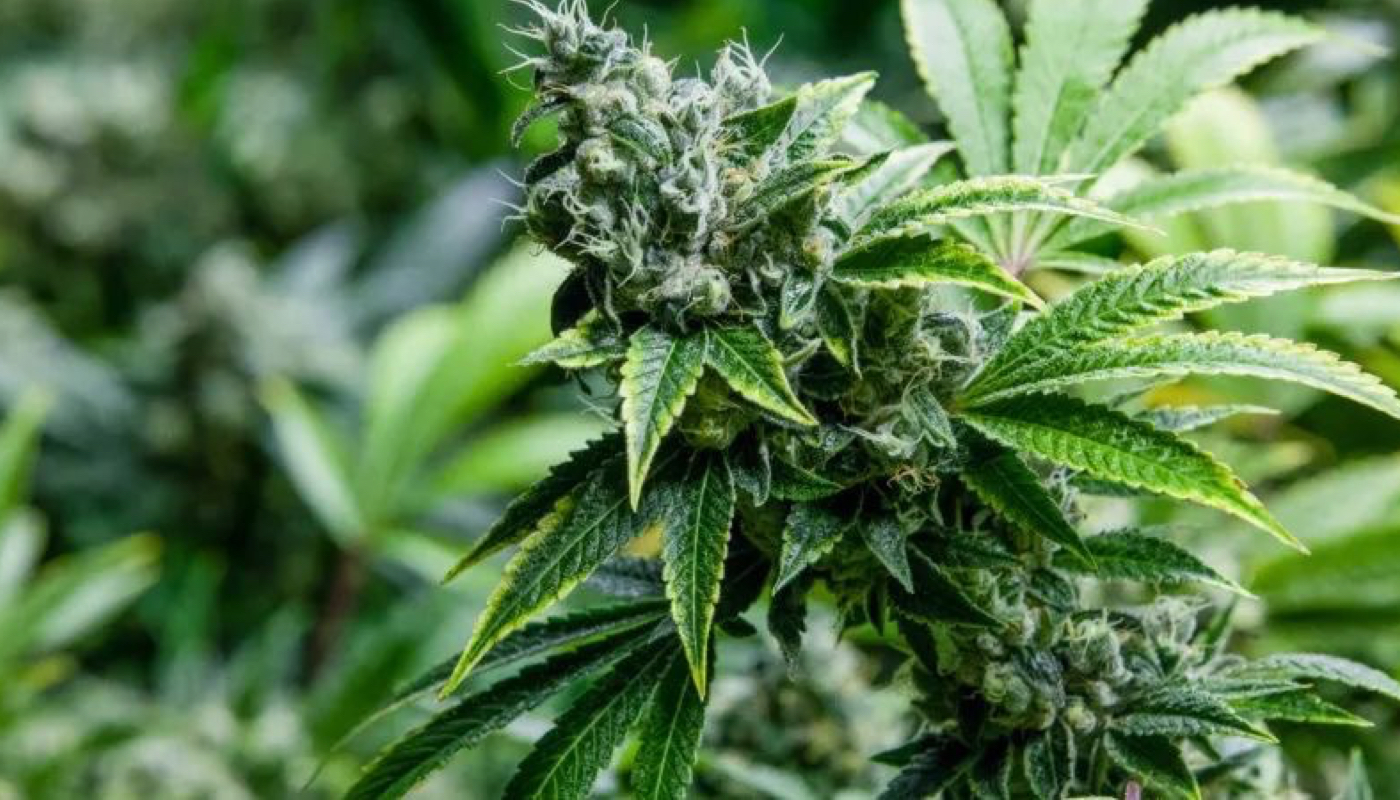
Today theme
2021 is a year of great concern in the cannabis industry. Big Tobacco Big Tobacco is very interested in the cannabis industry-acquiring companies, lobbying and investing in intellectual property rights. Big Pharma, a big pharmaceutical company, is also full of expectations for the cannabis industry, and is busy protecting intellectual property rights and acquiring companies. Cannabis companies like Canopy Growth and Aurora Cannabis, which have existed since the beginning, continue to build and buy technologies that they lack. In 2021, what will each company be interested in?
Experts said that intellectual property rights are playing an increasingly important role in the trade of cannabis industry. Because enterprises hope to hold valuable patents, trade secrets, copyrights and trademarks through acquisition or investment, so as to enhance their own value, differentiate themselves from competitors in intellectual property level, and further enhance the attractiveness of their own business and other transactions.

Big tobacco
Large tobacco companies such as Altria, a Marlboro cigarette manufacturer, and British American Tobacco (BAT), a camel cigarette manufacturer, are focusing on tobacco substitutes containing cannabinoids, such as atomizing devices and ingredients and oral bags. Each company has its own subsidiary to develop and manufacture their products. Juul Laboratory of Altria and Philip Morris Philip Morris showed great interest in e-cigarette of cannabis, and put forward the technology and components of e-cigarette respectively.
BAT's Nicoventures started playing in 2019, focusing on oral tobacco and cannabinoid bags, but also interested in e-cigarette technology. RAI Strategy and R.J. Reynolds are also owned by BAT, and are interested in e-cigarette technology and e-cigarette composition. BAT has already faced competitors in court for patent infringement of e-cigarette technology, and there may be more in the near future. As large tobacco companies are so interested in e-cigarette technology and tobacco substitutes, where do large pharmaceutical companies go?

Big Pharma
Not surprisingly, Big Pharm, a big pharmaceutical company, is interested in treatment. When Jazz Pharma and GW Pharmaceuticals completed their merger in May 2021, we saw one of the largest cannabis acquisitions to date. And it continued at that time until today, GW Pharmaceuticals has the most comprehensive portfolio of cannabis patents for medical treatment and cannabinoids use, especially CBD. In February 2021, Jazz, an Irish-based jazz pharmaceutical company, officially announced the acquisition of GW Pharmaceutical, one of the largest medical cannabis companies in the world, for $7.2 billion. GW Pharmaceutical Company official announced that Jazz Pharmaceutical Company was attracted by Epidiolex, a star product of GW. This cannabis-based antiepileptic drug is the best product to project intellectual property rights. The statement with GW Jazz Pharmaceuticals is a good example of the importance of intellectual property and patent creation. GW pharmaceutical company's antiepileptic drugs are patented prescription drugs approved by FDA, which is a valuable embodiment. On the day the deal was announced, Justin Geffel, CEO and co-founder of GW Pharmaceutical Company, said that the cannabis industry is a strong and attractive industry, and there will be more changes in the future, but the only constant is that it will continue to develop the intellectual property industry and maintain its leading position in the industry.
Janssen Pharaceutica, which was acquired by Johnson & Johnson, has not submitted any more cannabis patent applications since 2018, but it is still one of the leaders in the industry. Janssen focuses on cannabinoids and cannabinoid analogues, which are used to target cannabinoid receptors in the liver to treat nonalcoholic steatohepatitis, an upgraded fatty liver disease. They conducted research in cooperation with Bird Rock Bio in 2017.
Zynerba Pharmaceuticals is little known in the industry, but it takes strategic measures quickly and is a sleeper worthy of attention in the future. Since nearly ten years after GW, Zynerba has been building an extensive product portfolio for its external CBD Zygel for the treatment of fragile X syndrome. Its experiment in 2020 failed to produce the expected results; However, another key phase 3 trial will start in October 2021. If all goes well, Zynerba will discuss the approval of this drug to treat fragile X syndrome in children and adolescents. The failed trial revealed a group of patients who responded well to the treatment. Each patient was similar in that their FMR1 gene was methylated by more than 90% (gene methylation is the natural "shutdown" of the translated gene). The upcoming trials may focus on this group of patients with fragile X syndrome. Will Zynerba Pharmaceuticals become the next GW Pharmaceuticals? The Cannabis Patent Forecast® organization believes that Zynerba Pharmaceuticals is correct based on its patents and market activities. Now that you have seen the eyes of Big Tobacco and Big Pharma, what impact does that have on pioneer cannabis companies?

Big Cannabis
Aurora Cannabis and Canopy Growth are among the first cannabis companies to get real attention, and for good reason. All of them are frantically buying to expand production operations and intellectual property rights, and become the largest operators in North America. Nevertheless, most acquisitions are mainly for production and expansion of business scope. For example, recently Canopy Growth acquired Supreme in June 2021 to improve its quality flower products. Canopy Growth has developed almost all kinds of intellectual property rights and protected patent assets in ®Cannabis Patent Forecast® by itself, and is a leader in this field. Similarly, Aurora Cannabis has been applying for a patent, but it's not so active, and it's seriously lagging behind. In May, 2021, Aurora announced that it would increase its share issuance to look for another American acquisition (Aurora acquired Reliva in 2020 to enter the American market strategically). Aurora's patent focuses on cannabis varieties that are interested in cannabinoid extraction. Aurora's next acquisition should really focus on acquiring US patent assets to protect its market.
By 2021, one area of cannabis that has not received much patent attention is the use of cannabis products for animals. Only a few applications came from independent inventors this year, but also from Cannabis Global, Inc and Black Tulip Management, Inc The second area explored by the company is cannabis disposal. Hemp waste can be easily used to produce fuel or carbon products, but only a few companies have shown interest in it. The estimate of cannabis and cannabis waste in North America in 2019 is about 1 million tons. The waste treatment potential of this industry is huge. Finally, cannabis compliance technology has not received the attention it deserves. That is to say, the technology used to ensure that marijuana is transported to the correct location has no deviation in this process. In the past ten years, only 17 patent applications have been submitted in this field, and a total of 6 patents have been obtained. It is almost unaffected and ready to use.

Patent is the core competitiveness.
The importance of patents can't be overstated for the development of enterprises. Here, doctors share the explanations of some people in the industry on patents as the core competitiveness of enterprises:
Fu Duke Fu, interim chief operating officer of Australis Capital, a cannabis investment company based in Las Vegas, USA (the US subsidiary of Aurora cannabis, a Canadian cannabis producer), said that the cannabis industry is challenging because the great value and creativity given by intellectual property rights are endless. Mike Regan, founder and analyst of MJ Research Co, headquartered in Denver, USA, said that whether it's patents, trade secrets, brands or other value technologies, they are extremely attractive, providing competitive moats for enterprises, thus stabilizing market share, maintaining higher profit margins and enhancing value in the process of creating value.
Pauline Pelletier, a patent lawyer and director of Sterne, Kessler, Goldstein & Fox Company in Sterne Kessler, Washington, said that many cannabis companies are paying more and more attention to intellectual property rights. Many companies are investing in patent protection, which can improve the company's value, whether it is competitive value or valuation. Intellectual property rights have played an extremely important role in the high-profile mergers and acquisitions of cannabis industry. According to this trend, intellectual property rights will become the core competitiveness of cannabis industry in the future.
Christopher Gonzalez, a marijuana lawyer in California and a partner in Leech Tishman's Los Angeles office, said that the importance of intellectual property rights to marijuana companies cannot be overemphasized. Intellectual property rights can make or break a company.
Matt Karnes, founder of Greenway Advisors based in new york, said that with the development of new technologies, patent protection has become more and more important in the field of cannabis industry. In order to charge higher prices and enjoy higher profit margins, cannabis companies must strive to develop and study the protection of cannabis patents.

Write at the end
On the other hand, in China, according to the statistics of the World Intellectual Property Organization, more than half of the more than 600 patents related to cannabis in the world are in China's hands. Moreover, according to the latest ranking of patent applicants, the number of applications from Chinese enterprises has increased year by year. Until now, In addition to GW Pharmaceuticals ranking first, Hanyi Biotechnology (Beijing) Co., Ltd., a subsidiary of Chinese enterprise HMI Group, ranks second in the world and first in China in the global ranking of cannabinoid pharmaceutical invention patents-applicants. Yi Bio-patent mainly includes applications for layout of biomedicine, daily chemicals and other health products. In biomedicine, an effective patent protection network has been established for substances, formulas, preparations, indications, medical devices, etc. around the chemical components of industrial hemp. PCT patents have been applied for for research on pulmonary hypertension, influenza, diabetes and skin diseases.
Luc Duchaine, a Canadian entrepreneur and biochemist, said, "As cannabis is gradually accepted in western medicine, China's patent advantage in the field of cannabis shows that China has rapidly surpassed the West in this field. Chinese traditional medicine is bound to take advantage of this increasingly obvious trend. Therefore, with the growing legalization of cannabis in the world, intellectual property rights occupy a decisive and absolute position in the cannabis industry. Laying out patents in the fields of biomedicine and great health and effectively protecting the research and development achievements of enterprises through various types of intellectual property rights can promote cannabis companies to enhance product development and innovation, make up their own shortcomings in intellectual property rights, and lay a solid foundation for further market development.
- [knowledge]The Latest Confirmation of Cannabis Medicinal Use (Science|HMI)
- [knowledge]Cannabis Capital Market is on Fire
- [knowledge]The Relationship Between Cannabis and COVID-19
- [knowledge]The Latest Historic Progress of Cannabis Industry in the United States
- [knowledge]The Legal Cannabis Industry is Working Wonders in the American Job Market.
- [knowledge]Six More States in the United States are About to Launch the "Green Gold Rush" of Cannabis in 2022.

